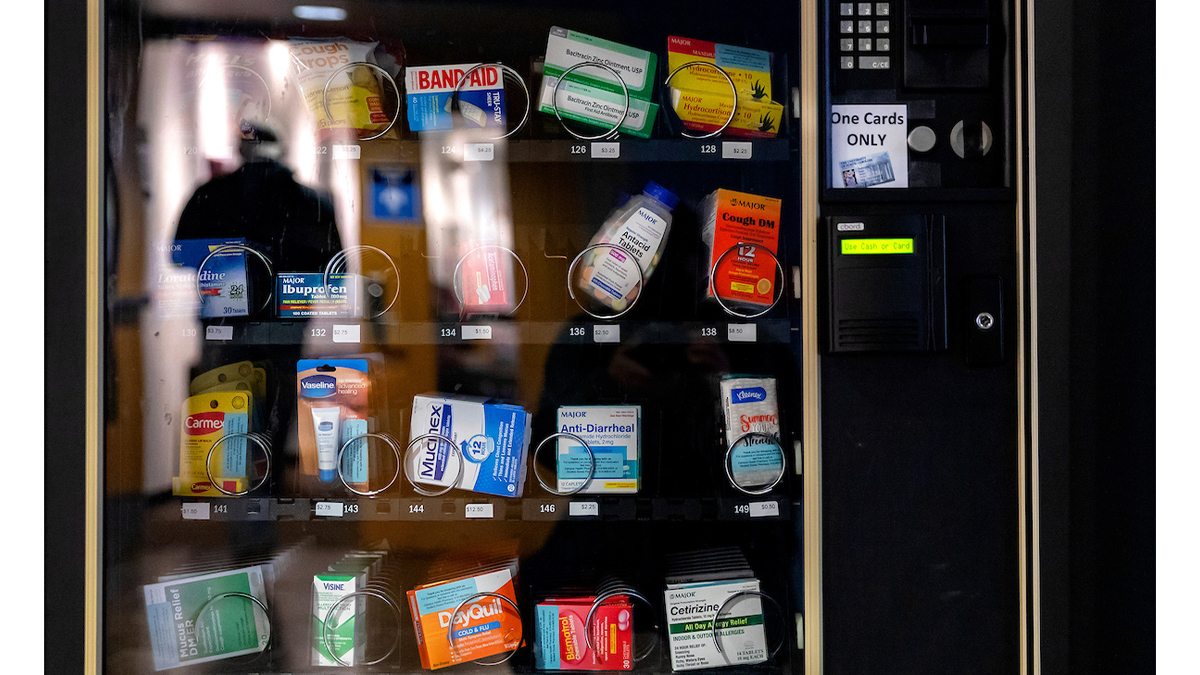‘Healthy Heels to Go’ vending machines make Campus Health products more accessible
New vending machines with over-the-counter medications and self-care items are providing Tar Heels with easier access to health care products no matter the time of day.

Students returning to Chapel Hill this semester will notice something new as they stroll through campus: “Healthy Heels to Go” vending machines filled with over-the-counter medications and self-care items.
The machines, which are operated by Campus Health, offer the same health care provider-recommended products currently offered at the Student Stores Pharmacy and the Healthy Heels Shoppe and can be purchased using a OneCard. The machines will include over-the-counter medications, such as cough and cold medicine, and self-care items, such as cough drops and lip balm.
But with locations such as the main floor of the Student Union, the new vending machines will make those products easier to access at any time. Another vending machine will be added to campus in the coming weeks.
“In our Healthy Heels Shoppe, which is located in the basement of Campus Health, and in the Students Stores Pharmacy, with the over-the-counter selection we have there, we’re able to bring at a very affordable price the self-care items that are recommended by our providers,” said Amy Sauls, director of pharmacy and professional services at Campus Health. “However, we can do that only during our business hours. And of course, students get headaches or are fighting the sniffles at 10 p.m.”
Knowing that the overnight gap in business hours left some students on campus without quick access to over-the-counter remedies, Sauls and her team at Campus Health began planning in fall 2019 for vending machines to be installed.
“The idea came about through us hearing from students and hearing from parents that their students were not able to easily obtain self-care items late into the night, after hours or on the weekends,” Sauls said. “So, we were thinking of how to make our products more accessible in those off-hours, and we knew that some student health centers [at other universities] had put in vending machines on campus.”
Sauls and Campus Health then partnered with student consultants in English 304, “Advanced Business Communication,” to gather student input for the project. Taught by Susan Irons, a teaching professor in the College of Arts & Sciences’ English and comparative literature department, the course helps students hone their professional communication skills by developing business proposals, reports and plans for real-world, professional partners.
Students worked throughout the semester to survey other students about what products they wanted the vending machines to include and where they should be installed.
“We were worried about privacy because maybe a student wouldn’t feel comfortable purchasing an item in front of everybody,” said Sierra Winters ’20, who worked on the project as a student. “We wanted to have a little privacy for the vending machines, but we also wanted to make it public so that people can still see it.”
The team presented their findings to Sauls and her team, which helped them narrow down the machines’ product selection.
Winters said that working on the project with Campus Health helped her practice many of the skills that she learned throughout the course, such as working with a client and communicating in a professional manner.
“It makes me feel really proud,” Winters said. “Me and my teammates, we worked really hard on this, and Campus Health worked really hard on this as well, and it’s just cool to have something like this on campus.”
Sauls said that the vending machines expand Campus Health’s ability to serve students, no matter the time of day.
“Campus Health wants to make sure our students thrive and are successful, and taking care of these minor ailments and providing self-care products is a part of that,” she said. “Also, helping students to select products that have evidence behind them, that are recommended products, and enabling them to get those products at a price they can afford, that’s all part of our mission at Campus Health.”




